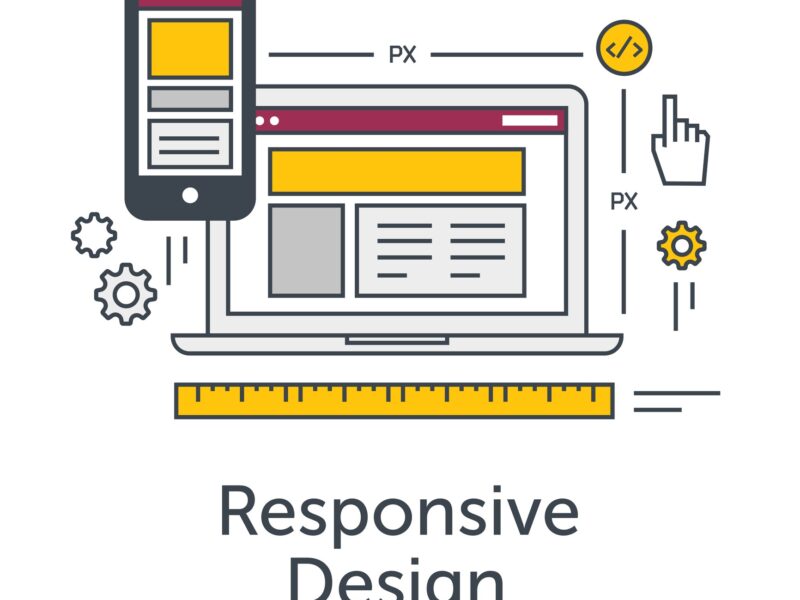Which is the best platform for app development? Are you using a mobile device? Desktop? Web? On the other hand, a combination of those options? Customers often need clarification about web apps and think desktop apps need to be updated. Nothing is farther from the truth, and in many case scenarios, a desktop app is the best option.
Users downloaded 143.6 billion applications in 2021, which is only the starting point. In 2024, this number is expected to rise to 184 billion. This number can be increased by providing customers the websites that contains better web designs.
And those companies that provides better web designs are getting higher traffic very sufficiently. And web development companies in california is one of the best web design & development company in USA that provides websites with best web designs.
Many companies are presently perplexed by the huge array of options obtainable. However, it is essential to stay up to date on the updated software. This article evaluates desktop, web apps, and offers a detailed analytical comparison list.
What is a desktop application?
A desktop application is a software program designed to run on a computer network with and without web access and a browser. Customers must first install and download the necessary packages to use these answers.
For example, Windows Media Player, Excel, Games, and Microsoft Word. To feature each of these applications that require a portion of main memory storage space.
Pros of the desktop app
- Cheaper Alternatives
These programs may be more expensive than web-based apps, but they are generally one-time payouts with no continuing fees. When you purchase the desktop version, it becomes your own. You are not obliged to pay monthly subscriptions or make other extra payments.
- Improved Hardware Integrity and Performance
Installing the correct version of your desktop software system will work well with your structure. Installing software designed primarily for your hardware helps ensure that it will work smoothly on your device. Furthermore, desktop apps can implement this intensive strategy and provide more features than web-based applications.
Cons of the desktop app
- Increased Space Utilization
Desktop software necessitates more hard drive storage space on the computer to install the required packages and related data. Furthermore, any new document added by the customer is saved on the system, ingesting more space and trying to load the system.
- Manually upgraded
Uploading a new file whenever an update becomes available can be time-consuming. You must wait for its interoperability check and construction and reboot the system to guarantee a successful setup.
What is a Web App?
A web app or webserver is software designed, installed on a remote computer, and available via a search engine and web access. These applications are created to run in a web browser and do not need to be installed on a physical server.
For example, Consumers can connect Google Docs from their search engine and utilize it to create documents without downloading the application to their device.
Pros of web app
- No need for installation and downloading
Entering the proper link will take you to build a web application. This implies it will not take up your hard drive’s space and will be available from any device. You also save time on downloading and installation. Some apps require that you create an account to save your progress and extra access features, but this is a simple and quick process.
- Automatic Updates
Manual downloading, updating and implementation could be more comfortable. It can also be time-consuming, as you have to wait for the upgrades to be installed, authorized, and downloaded. Fully automated updating helps you save time and helps to ensure that you use the most current version of your app.
Cons of web app
- Slow Performance
When comparing web applications to desktop apps, web applications may be regarded as slower since internet interruptions can easily impact their procedure. Moreover, if the vehicle’s processing power is restricted, only a part of it is devoted to the search engine. As a result, the web-based application will start taking its time in analyzing directions.
- Security Concerns
With the increase in cyber-attacks, every individual and company is worried about data security. Many questions are raised when collecting and analyzing on a web computer. If the app chosen does not abide by the guidelines issued by the government and affiliated regulatory authorities, there may be a potential threat.
The following differences between designing a web App and a desktop App:
- Multi-task user interactions
Users can open multiple open tabs in a Web App to accomplish various tasks. To enable eye-scanning, all tab windows are placed horizontally. In a Desktop App, users will face different windows or numerous overlay models in one window to perform tasks. The task for desktop app designers here is to help customers find the window they need to bring the right window to the center of the image during multi-tasking.
- Speed
People are restless and which is why a fast app is essential. Desktop apps were always faster than web apps on average. This is because most web apps have page load time when trying to switch pages.
In theory, desktop apps do not have loading times after setup. The only time you may be required to wait is while the app retrieves large amounts of information from an external entity.
Desktop apps can give a local-first experience, enabling you to work offline whenever or wherever you desire.
- Installation
With a desktop app, you download the system on a PC (or laptop) or start creating a server-side shortest route to the application. A web app can be obtained using a search engine such as Safari, Edge, Chrome, or Firefox. Many web applications benefit from being accessible from any PC, relying on security settings. This is useful if you need a dedicated workstation or laptop.
Comparison between
| Desktop App | Web App |
| Individual client machines are used for deployment and any patching/upgrades. | A web-based application must be installed and updated on a single set of server machines. |
| Desktop applications must be created separately for each platform machine. | Web apps are platform-independent, indicating they can run on a wide range of platforms, the only requirement being a search engine. |
| Desktop applications do not involve internet service to function. Some apps only involve internet access when being upgraded. | Web apps depend heavily on internet access to work correctly. |
| Because desktops are restricted to a single machine, they cannot be accessed from the computers they are equipped with. | Because web applications can be obtained from everywhere, there is no geological limitation. |
| In contrast, desktop applications have enhanced approval and administration, making them safer. | Because web applications are inherently designed to increase accessibility, they present greater security risks. |
Conclusion
Because web apps are cross-platform applications, people can be remotely controlled from any device without requiring updating, installation, or maintenance. Web apps believe that they are the future of software applications.
Similarly, desktop applications offer their own set of benefits. Most desktop applications can be used without internet access, which is exceedingly helpful in privacy, speed, and security.
So deciding between a desktop app and a web app may take time and effort. It depends on your preferences, what you are familiar with or accustomed to, and your needs and circumstances.


